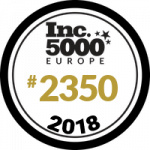Summary In the contemporary business environment, digital procurement is becoming increasingly popular and sought after by businesses around the world. The relationships …
From chaos to clarity: How project management consultancy can tame projects
What is the significance of managing complex projects?
Minimising risk
Chaotic or complex projects involve multiple stakeholders, dependencies, and uncertainties. Without effective management, these projects are prone to various risks such as budget overruns, missed deadlines, and quality issues. Project management helps identify and mitigate risks, reducing the likelihood of project failure.
Optimising resources
Complex projects require significant resources in terms of time, money, and personnel. By carefully planning and monitoring resource allocation, project management consultants can identify potential bottlenecks and allocate resources strategically, ultimately enhancing project outcomes and reducing unnecessary expenditures.
Maintaining stakeholder satisfaction
Chaotic projects can lead to confusion, frustration, and dissatisfaction among stakeholders. By establishing clear communication channels and managing expectations, project management consultants help to maintain positive relationships with stakeholders and foster trust throughout the project lifecycle.
Achieving project objectives
Organisations are driven by the direction paved by objectives. Complex projects often have ambitious goals and deliverables. Effective project management provides a structured approach to defining, planning, and executing these objectives, ensuring alignment with organisational priorities and strategic initiatives.
Why is project management maturity an important objective placed by firms?
Achieving maturity in project management stands as a cornerstone for organisations committed to maintaining a track record of project success. Most often this involves honing and streamlining procedural frameworks, resulting in resonated efficiency, reduced risks, increased quality, and heightened resilience towards change—attributes that collectively fortify the organisation’s project outcomes.
As organisations progress in their project management proficiency, they navigate project lifecycles, optimising resource utilisation, minimising setbacks, and fostering operational fluidity. Fine-tuned project management methodologies empower proactive identification and mitigation of risks. Equipped with established protocols and accrued expertise, organisations proactively tackle potential hurdles, mitigating project risks before they escalate.
A mature project management landscape cultivates consistency in project delivery, underpinned by standardised processes and methodologies that yield superior work quality, mitigating errors and obviating the need for extensive revisions.
Heightened project management maturity often coincides with enhanced communication and collaboration dynamics. Organisations embracing mature project management practices typically exhibit elevated project success rates, characterised by achieving objectives, adhering to budgetary confines, and meeting deadlines.
Mature organisations demonstrate greater adaptability to evolving project dynamics, seamlessly accommodating shifting demands, scope adjustments, and unforeseen challenges. Agile and flexible project management frameworks enable nimble responses to change, ensuring project success even amid dynamic environments.
A culture steeped in project management prioritises continuous improvement, leveraging insights gleaned from past endeavours to refine future projects and perpetuate the organisation’s growth trajectory.
What are the strategies adopted by project management consultants?
Establishing clear goals and objectives
Project management consultants work with stakeholders to define clear and achievable project management goals, ensuring alignment with organisational objectives and priorities.
Developing comprehensive project plans
Create detailed project plans that outline tasks, timelines, and resources. This helps stakeholders understand their roles and responsibilities, minimising confusion and uncertainty.
Implementing robust communication channels
Project management consultants establish effective communication channels to facilitate connectivity, collaboration, and information sharing among stakeholders and team members.
Applying project management methodologies
Consultants leverage proven project management methods to streamline workflows and adapt to changing requirements, organising work, managing risks, and delivering value incrementally.
Utilising project management tools
Project management software streamlines project planning, tracking, and reporting processes, enabling real-time visibility and facilitating decision-making and proactive risk management.
Resource optimisation
12% of resources get wasted due to poor resource allocation. Project management consultants help organisations optimise resource allocation and utilisation to maximise efficiency and minimise waste.
By implementing these solutions and strategies, project management consultancy brings clarity, organisation, and ultimately, success to chaotic or complex projects, enabling organisations to achieve their goals efficiently and effectively.
What are the common causes of project chaos?
Scope creep
Scope creep occurs when project requirements expand beyond the initially defined scope without corresponding adjustments to the project timeline or budget. This can lead to increased project complexity, resource strain, and delays as additional tasks are added without proper planning or consideration of the project’s overall objectives.
Communication breakdowns
Communication has always proven to be key. Inadequate communication among project stakeholders and leadership can result in misunderstandings, conflicting priorities, and delayed decision-making. Poor communication channels can hinder progress, increase the likelihood of errors, and contribute to project confusion and chaos.
Unrealistic timelines
Setting unrealistic timelines or deadlines without considering project complexities, resource constraints, and potential risks can lead to rushed implementations, compromised quality, and increased stress among team members. Unrealistic timelines often result in missed milestones, project delays, and ultimately, project chaos.
Inadequate risk management
Risk management is vital for project success. Failure to identify, assess, and mitigate risks can lead to unexpected issues and disruptions that derail project progress. Without a comprehensive risk management plan in place, projects are vulnerable to delays, budget overruns, and quality issues, contributing to uncertainty.
What is the process of project chaos management?
The transformation process from chaos to clarity in project management is a journey marked by key milestones and turning points.
Recognition and realisation of chaos: The first milestone of project management occurs when stakeholders and project team members recognise the existence of chaos within the present project. Most often the symptoms of project chaos may include missed deadlines, unclear objectives, escalating conflicts, and disorganised workflows.
Engagement of project management consultants: The decision to engage project management consultants marks a turning point in project elevation and handling. They bring expertise, experience, and fresh and modern perspectives to the undertaken project, which helps instil confidence and understand where there is room for improvement.
Initial assessment and strategising: Project management consultants conduct a comprehensive assessment of the project’s current stamp of progress, while identifying pain points, weaknesses, and areas for improvement. Based on the assessment, a strategic plan is then developed to address certain issues and bring clarity to the project.
Establishment of clear objectives and scope: Clear objectives and scope are defined, aligning with organisational goals and stakeholder expectations. This milestone sets the foundation for a focused and purpose-driven project approach. This direction paves the path for stakeholders, which results in fewer project-related blunders.
Development of robust processes and workflows: Project management consultants collaborate with the project team towards the development of robust processes and workflows tailored towards the project’s needs. Streamlined project processes and functions ensure clarity in task execution, resource allocation, and communication channels.
Implementation of project management tools and technologies: Companies are finding the sweet spot to tackle processes through the introduction of project management tools and technologies to enhance project management visibility, tracking, and collaboration. These tools have allowed greater efficiency and endurance to project plans.
Proactive risk management and issue resolution: Project management consultants implement proactive risk management strategies to identify, assess, and mitigate potential project management risks. Rapid resolution of issues and challenges prevents bottlenecks and maintains momentum resulting in better project management coordination.
Continuous monitoring and adaptation: As times continue to be volatile, the continuous monitoring of projects is critical. Progress paves the way for early detection of deviations and variances from the plan. Adaptation and course correction strategies ensure that the project management remains on track towards objective achievement.
Partnering with project management consulting expertise
A project management consultant acts as a guiding light, steering your organisation away from potential pitfalls and costly oversights. Their invaluable insights help mitigate risks, improve operational efficiency, and streamline project management processes.
Project management consultancy goes beyond mere expertise; it’s about strategic alignment. Consultants collaborate closely with your organisation to tailor solutions that seamlessly align with your project objectives, budgetary constraints, and timelines.
The outcome is an elevation of your project management maturity levels, characterised by heightened efficiency, effectiveness, and a proactive approach to tackling challenges. Take advantage of project management consulting to align with industry best practices, elevate your project function, and embark on a trajectory towards enduring success.
Fighting the effects of inflation with sourcing and procurement consultants
Stay up-to-date on the latest insights on procurement, finance, and project management.
Summary Strategic procurement has become a necessity in today’s business world and organisations try to remain competitive. Having the right procurement strategies …
Summary The world of consulting has been undergoing a massive transformation and management consulting jobs are experiencing the impacts of these changes. …
FAQ
Project management consultants offer a range of services tailored to meet the specific needs of organisations, which include project planning, risk management, stakeholder engagement, change management, performance monitoring, and quality assurance. Consultants work closely with clients to develop customised solutions that align with project objectives and deliver tangible results.
Project management consultants play a crucial role in enhancing project maturity levels by conducting thorough maturity assessments, identifying areas for improvement, and implementing best practices and methodologies.
Project management consultants work closely with organisations to understand their specific objectives, constraints, and operating environment. They develop customised solutions that align with the organisation’s goals, budget, and timeline. By leveraging industry best practices and strategic alignment, consultants help elevate project management functions and drive sustained excellence.














